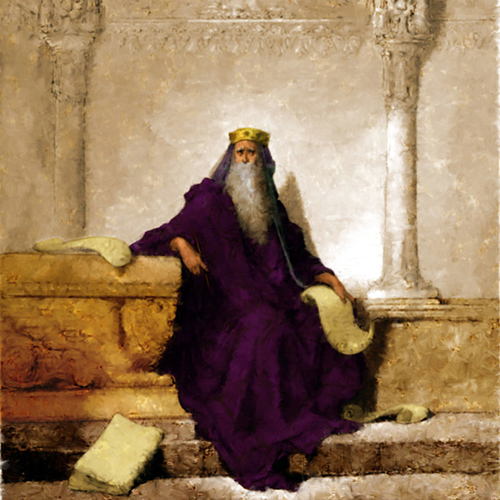Names of the Book
| English: | 2 Chronicles |
| Hebrew: | דברי הימים בּ |
| Transliterated: | Divrei Hayamim Bet |
| Other names: | The Book of Days [1 and 2 Chronicles were originally one book] |
 Who
Who
| Wrote the book: | Ezra |
| Are the key people: | David, Solomon |
| Is it written to: | The people of Israel |
 What
What
| The reign of Solomon and the construction of the Temple (2 Chronicles 1:1-9:31) |
| The kingdom of Judah and its eventual exile to Babylon (2 Chronicles 10:1-36:23) |
 When
When
| Was it written: | c 430 BCE |
| Did the events occur: | c 1000-960 BCE |
| Was it canonized: | c 499-100 BCE |
| (see the Timeline of the Tanakh) | |
 Where
Where
| Was it written: | Israel |
| Did the events occur: | The land of Israel: Gibeon, Jerusalem, Shechem, hill country of Ephraim, Samaria, and Ramoth Gilead; Aram (Syria) |
 Why
Why
| 2 Chronicles was written to inform us that: |
| The Temple was the abode of G-d's presence. |
| Faithfulness to G-d results in peace. |
| Prayer to G-d can result in deliverance. |
| Unfaithfulness to G-d results in national collapse. |
 Introduction
Introduction
The historical narrative of Second Chronicles begins where First Chronicles ends: Solomon ascends to the throne of his father, David and establishes himself securely over the kingdom of Israel. After the initial glory of Solomon's reign, his sons' actions divide the kingdom and lead both Israel and Judah into sin. Second Chronicles records Judah's descent into sin that culminates in their exile in Babylon. Although the northern kingdom, Israel, is led by a series of idolatrous kings, Judah had several godly kings, most notably Hezekiah and Josiah. In spite of their efforts to turn Judah back to G-d, the nation continues their spiritual decline. The book concludes by jumping ahead several years after the Babylonian captivity to record the decree of Cyrus that enabled the Jewish exiles to return to the Promised Land.
Scripture- Book Selection
